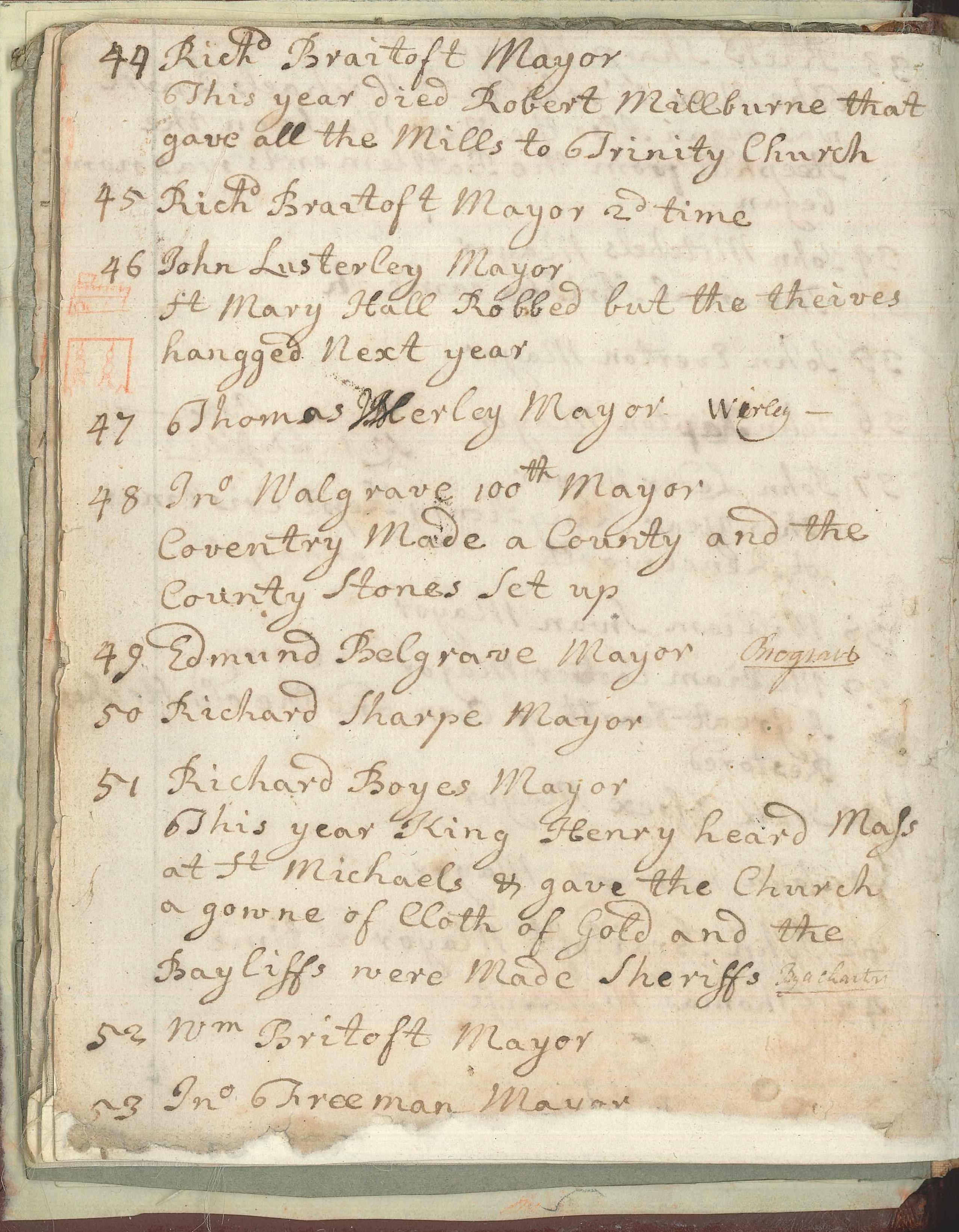Tales from the archives: Thomas Walton - The Man They Couldn’t Hang?
24 April 2019
On 24 April 1446 (1), a man by the name of Thomas Walton was brought before John Lusterly (2), the Mayor of Coventry and his Justices of the Peace, and charged with the theft of property from St Mary's Hall.
Walton, described as a yeoman of Westminster, was accused with “persons unknown” of breaking into the Hall and stealing over fifty items of silverware belonging to the powerful Trinity Guild. An account of the charge and Walton's condemnation to death for robbery is included in Thomas Sharp's book on the history of Coventry (3), as is Walton's subsequent claim of the benefit of clergy - a long standing right of members of the clergy to be tried in an ecclesiastical court.
There is no evidence that Walton was, or ever had been, a member of the clergy, but he may have well have been aware of how lenient the ecclesiastical courts could be, compared to their secular counterparts (4) . Walton was duly delivered to the "Ordinaries of the Diocese," and on 11 October 1447, the Bishop issued a writ, asking that whoever had cause to confirm the charges against Walton, or to object to his purgation (5) , should appear before the Bishop before the end of the month to present his case.

(A page from the City Annals, describing the robbery at St Mary’s Hall and the fate of the two condemned men.)
And sadly, that is where the account ends. What happened to Thomas Walton, and whether his claim of benefit of clergy was ever successful, can only remain conjecture, but City Annals (6) for the time state that two other men, John Hirdis (7) and William Lingham, were also tried and hanged for the same offence, and this may have been enough to satisfy the demands of Justice . As Sharp himself concludes, "it may be inferred from the power of the Clergy at this period, and the fact of two differently named persons being mentioned in the City Annals, as suffering for this Robbery, that Walton escaped punishment."
(1) Sharp expresses some doubt about the accuracy of this date – for the purposes of his post, however, the date is taken to be correct;
(2) Lusterley was a weaver by profession, and also served as a bailiff in 1439;
(3) Thomas Sharp, “History and Antiquities of the City of Coventry,” page 212;
(4) Towards the end of the fifteenth century, Henry VII implemented reforms to help end the abuse of the system of benefit;
(5) Purgation/Compurgation – the process by which an individual takes an oath of innocence. If a number of others, typically twelve in number, declare that the oath is genuine, the accused is acquitted;
(6) Coventry Archives, collection, reference PA535/1 (see image);
(7) John Hirdis was sometimes known at John Heires